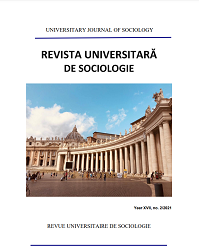CHILD LABOUR IN THE KOLOMINE AND KAMBELE MINING SITES IN EAST CAMEROON: COMBINED VIEWS ON THE WORST FORMS OF OPERATIONS
CHILD LABOUR IN THE KOLOMINE AND KAMBELE MINING SITES IN EAST CAMEROON: COMBINED VIEWS ON THE WORST FORMS OF OPERATIONS
Author(s): Alain Thomas Etamane Mahop, II MOUSSASubject(s): Civil Law, Human Rights and Humanitarian Law, Human Resources in Economy, Business Ethics
Published by: Ediktura Beladi
Keywords: Work; Children; Mining; Kolomine; Kambélé; East Cameroon; Exploitation;
Summary/Abstract: Child labour is a worrying problem for two reasons: first, because of the number of children concerned, which remains very high, and secondly because of the negative consequences that premature labour has on the personal development of the child and on economic development. And social in East Cameroon. Our analysis shows that child labour in the Kolomine and Kambélé mining sites in East Cameroon, which is one of the worst forms of work under ILO Convention No. 182, is thankless, dangerous and repetitive and painful. Neither for children nor for their parents, has it resulted from choices influenced by positive social representations of child labour as a role of learning and socialization. This work compromises children's education, destroys their health, affects their personal development and impoverishes them. Engaged in this labour because of their family vulnerability, child labourers in Kolomine risk perpetuating the vicious circle of poverty indefinitely. In this forbidding environment where little girls and boys work, unequal gender relations are built and maintained. The organization of work, remuneration and the value conferred on various tasks are subject to discrimination. While they should be given attention and leisure, from the age of 5, little girls are busy between looking after the youngest and doing small chores. From an early age, they learn bitterly about all the segregations to which they will be victims as they grow up, and assume their share of family and social responsibilities which will only increase. Their active participation in mining and in the family economy does not seem to change the gender relations that are passed on from one generation to the next. Combating child labour means taking into account these gender inequalities that develop and reproduce, increasing the burden on girls and women.
Journal: Revista Universitară de Sociologie
- Issue Year: XVII/2021
- Issue No: 2
- Page Range: 163-173
- Page Count: 11
- Language: English

